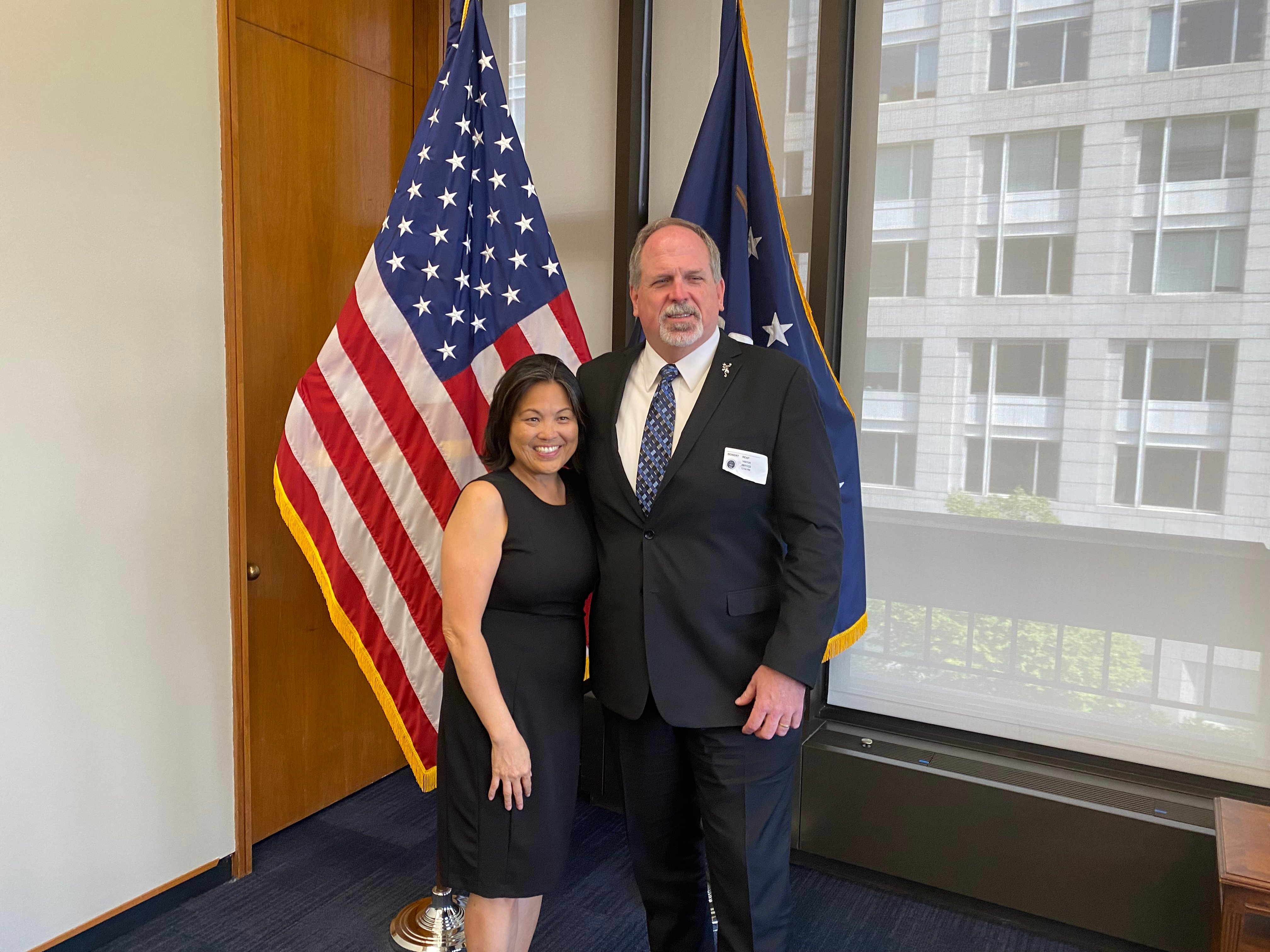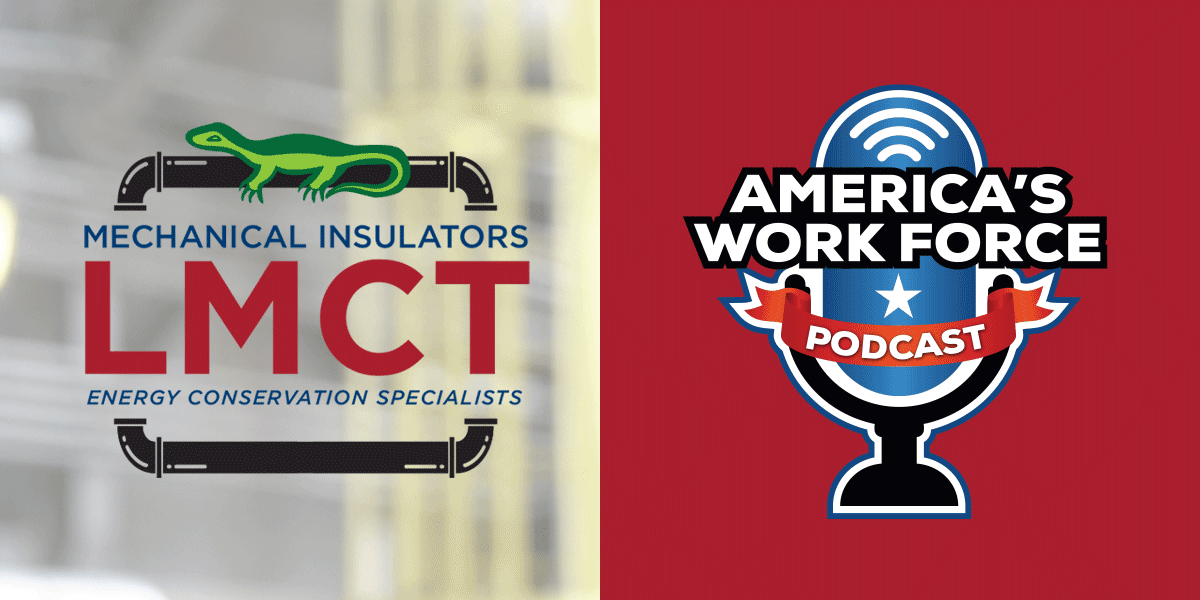
On Sept. 11, International Association of Heat and Frost Insulators and Allied Workers General Secretary-Treasurer Robert W. Reap met with Acting U.S. Department of Labor Secretary Julie Su.
In addition to General Secretary-Treasurer Reap and Su, the meeting was also attended by U.S. DOL Director of Public Engagement Taylor Barns Lord and Mechanical Insulators LMCT Executive Director Pete Ielmini.
Su was nominated earlier this year to replace former DOL Secretary Marty Walsh and is waiting for a confirming hearing to become his permanent replacement.
While former Secretary Walsh came from the building trades and had a clear understanding of the work performed by the Insulators, Su does not have a building trades background.
As such, General Secretary-Treasurer Reap felt a meeting with Acting Secretary Su would be valuable for the best interests of the Mechanical Insulation industry.

During the meeting, several topics were discussed regarding the insulation industry.
He explained how Mechanical Insulation is an important part of all buildings and structures, but is often misunderstood and undervalued.
Even more importantly, he emphasized the value of the members of the Insulators Union and how the IAHFAW has a skilled workforce that can be mobilized where there is a demand for work.
“As we prepare to deal with the potential labor shortages, we must be prepared to supply labor when and where the work demands it,” said General Secretary-Treasurer Reap. “We need to be prepared for the ability of our members to cross the U.S./Canadian border to fulfill the labor requirements as needed.”
“We need assistance with streamlining the work visa procedures,” he added.
Secretary Su was grateful General Secretary-Treasurer Reap brought this concern to her attention, and she said that while she was unsure of what the Department of Labor can do with this issue, but she would investigate it.
Additional conversation centered around the awareness and function of Mechanical Insulation, and included the benefits of how it will save money, lower operating costs and reduce harmful greenhouse gas emissions.
Executive Director Ielmini also discussed how Mechanical Insulation can increase the life cycle of expensive mechanical systems. He noted that numerous studies demonstrated that 10 percent to 30 percent of Mechanical Insulation is missing or damaged in all buildings – new and old. By addressing the lack of sufficient Mechanical Insulation, the government can also help the industry’s workforce and lead to the creation of good-paying careers, while bolstering the IAHFIAW’s registered apprenticeship programs.
“The Insulators Union trains our members for a lifetime career and not just a job, but we need the work opportunity to connect the people that we train,” said Executive Director Ielmini.
“Mechanical Insulation will save money and create careers,” General Secretary-Treasurer Reap added.
The last topic covered was the Federal Mechanical Insulation Act (H.R. 4663), which was introduced with bipartisan support in the House of Representatives and placed into the House Energy and Commerce Committee.
General Secretary-Treasurer Reap explained how the passage and enactment of the FMIA would increase the union’s recruitment efforts for apprentices and provide more men and women with the opportunity to live a middle-class lifestyle.


Comments